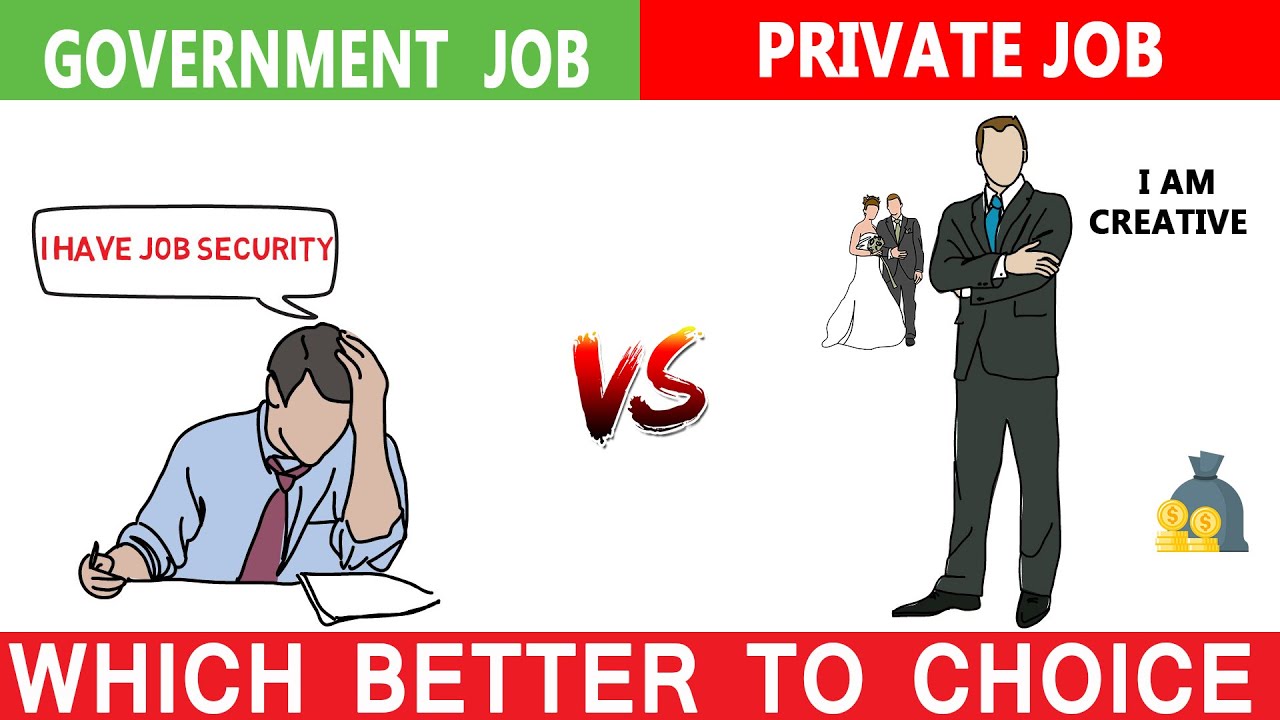
Choosing between a government job and a private job is one of the most important career decisions in a person’s life. Both paths come with their own pros and cons, and the right choice depends on your career goals, lifestyle preferences, and long-term aspirations.
This blog explores the differences, benefits, challenges, salary structures, work culture, and career growth opportunities in government and private sectors, so you can decide what’s best for your future.
Key Differences at a Glance
| Feature | Government Job | Private Job |
|---|---|---|
| Job Security | Very high | Varies; often low |
| Salary Structure | Fixed by pay commission | Negotiable based on role and performance |
| Growth Opportunities | Slower promotions | Faster promotions for performers |
| Work Pressure | Generally moderate | Often high and target-based |
| Work-Life Balance | Usually good | Depends on the organization |
| Retirement Benefits | Pensions, gratuity, PF | PF, gratuity (pension not common) |
| Transfer Policy | May involve relocation | Usually limited relocation |
| Job Satisfaction | High for stability lovers | High for achievers and innovators |
Government Jobs – Pros & Cons
✅ Advantages:
- Job Security: Highly secure and stable.
- Fixed Working Hours: Allows better work-life balance.
- Attractive Perks: Includes DA, HRA, LTC, pensions, medical cover.
- Respect and Social Status: Government officers are often respected.
- Retirement Benefits: Pension, Provident Fund, and Gratuity ensure financial support after retirement.
❌ Disadvantages:
- Slower Promotions: Advancement is often based on seniority.
- Limited Flexibility: Less room for innovation or policy changes.
- Transfer Policies: You may be transferred to rural or remote locations.
- Competitive Entry: Tough entrance exams like UPSC, SSC, Banking, etc.
Private Jobs – Pros & Cons
✅ Advantages:
- Higher Salary Potential: Especially in IT, finance, consulting, and startups.
- Faster Career Growth: Promotions and rewards are based on performance.
- Dynamic Environment: Opportunities to learn and innovate constantly.
- Global Exposure: Many private companies offer foreign assignments and modern tools.
- Choice of Role: Flexibility to switch roles or industries over time.
❌ Disadvantages:
- Job Insecurity: Layoffs and downsizing are common.
- High Work Pressure: Tight deadlines, KPIs, and performance reviews.
- Work-Life Balance: Often compromised due to long working hours.
- Less Retirement Security: No pension in most cases.
Who Should Choose a Government Job?
Choose a government job if you:
- Prefer job stability over high earnings.
- Want to serve the public or work in civil administration.
- Value work-life balance and long-term benefits.
- Are ready to invest time in competitive exams and preparation.
Popular Government Sectors:
- UPSC (IAS/IPS/IFS)
- SSC & Railways
- Banking (SBI, IBPS)
- PSU (ONGC, BHEL, NTPC)
- Teaching (KVS, DSSSB, UGC NET)
- State government services
Who Should Choose a Private Job?
Choose a private job if you:
- Aim for higher income potential early in your career.
- Thrive in competitive and fast-paced environments.
- Are passionate about technology, business, or creative fields.
- Want flexibility to change industries or roles.
Popular Private Sectors:
- IT & Software (TCS, Infosys, Wipro)
- Startups & E-commerce (Flipkart, Zomato)
- Finance & Banking (HDFC, ICICI, MNCs)
- Healthcare, Consulting, Media
Government vs Private Job: Which is Better?
There is no one-size-fits-all answer. Here’s how to decide:
- Want stability & security? → Government Job
- Want higher salary & faster growth? → Private Job
- Want structured life? → Government
- Want freedom, innovation, and challenge? → Private
Pro Tip: Many professionals start in the private sector for experience and later switch to the government sector for security — or vice versa.
Summary
Whether you’re fresh out of college or considering a career switch, understanding the differences between government and private jobs can guide you toward the right path. Think about your priorities, strengths, and long-term goals. No job is inherently better — it’s about what suits you best.





